One question we frequently get asked at Phoenix Men’s Health Center is,
“Is testosterone therapy going to make me sterile?”
The short answer is no, not technically. Testosterone therapy is not going to make you sterile. However, it may affect and lower your fertility. The reason lies in the relationship between hypothalamus/pituitary glands and the testes. If you are thinking about having children in the future or worried about your fertility, we recommend that you read this article and have a conversation with your physician and your spouse before starting testosterone therapy.
To understand why testosterone therapy can affect fertility, we have to delve into how the testes is stimulated to produce sperm. The hypothalamus, a region of the brain, secretes gonadotropin-releasing hormone (GnRH) when testosterone levels are low. GnRH then stimulates the pituitary gland to synthesize and release two primary gonadotropins, luteinizing hormone (LH) and follicle-stimulating hormone (FSH). LH and FSH travel down the bloodstream in the body to the testes and interacts with the cells in the testes to stimulate synthesis of testosterone and sperm, respectively.
However, we can disrupt this regulatory feedback cycle by pumping in exogenous testosterone (testosterone not made from the body; injections, creams, pellets, etc.).
Testosterone is an inhibitor of LH and FSH
so the body doesn’t keep generating testosterone when the levels are high.1 By increasing testosterone levels in the body, production of LH and FSH is suppressed, which means there’s less signaling to the testes to produce sperm. Therefore, fertility is reduced. Don’t give up your hopes yet! Reversal of the process is possible dependent upon different variables like age of the person and how long they have been on testosterone therapy (longer therapy may lead to greater chances of infertility).
So what can we do? Lowered testosterone levels can severely affect the quality of life for a guy, through fatigue, lower energy, depression, weight gain, and more. Phoenix Men’s Health Center’s recommendation is to first take into consideration you and your spouse’s wants for future children before starting testosterone therapy. Then, we can test for levels of LH and FSH in your body, along with testosterone levels. We can also write a prescription for semen analysis, which we can read and help interpret with you. If testosterone therapy is the best option, we can continue to routinely test levels of testosterone and gonadotropins, as well as repeat semen analysis to see how everything is affected by the exogenous testosterone.
Prescription treatment options are available as well. Clomid (Clomiphene) is a widely prescribed infertility drug that causes increase in FSH and LH levels through interactions with the hypothalamus.2
Studies have shown Clomid to increase sperm count and motility.3
Clomid is a good option for younger men, those who wish to maintain fertility, or worried about their testes size shrinking (which is possible with testosterone therapy). Another option is injectable forms of human chorionic gonadotropin, like Novarel or Pregnyl, that mimic LH and stimulate androgen generation.4
Herbs and nutrient supplementation as discussed in the libido article are also helpful. In addition, low testosterone can be managed through changing your lifestyle, including eating healthier, exercising, quitting smoking, and getting better sleep. Each individual and their reason for having low testosterone is different, so getting comprehensive testing and analysis of lifestyle to draw up the best customized treatment plan is critical. Please schedule an appointment with one of our experienced physicians at Phoenix Men’s Health Center to discuss your testosterone and fertility options through this link or by calling our office at 602-908-5422.
References:
- McClure, R. (2005). Endocrinology of male infertility. In Office Andrology(pp. 11-37). Humana Press.
- Adashi, E. (1984) Clomiphene citrate: mechanism(s) and site(s) of action—a hypothesis revisited. Fertility and Sterility., 42, 331–344.
- Patankar S., Kaore S., Sawane M., Mishra N., Deshkar A. (2007) Effect of clomiphene citrate on sperm density in male partners of infertile couples. Indian Journal of Physiology and Pharmacology. 51, 195-8.
- Burris, A., Rodbard, H., Winters, S., Sherins, R. (1988). Gonadotropin therapy in men with isolated hypogonadotropic hypogonadism: the response to human chorionic gonadotropin is predicted by initial testicular size. The Journal of Clinical Endocrinology & Metabolism, 66(6), 1144-1151.
**This content is for informational purposes only and is not intended as medical advice. Please consult with a healthcare professional before starting any treatment. Individual results may vary based on health conditions and other factors.


You really make it seem so easy with your presentation but I find this topic to be
really something that I think I would never understand.
It seems too complicated and extremely broad for me.
I am looking forward for your next post, I will try to get the hang of it!